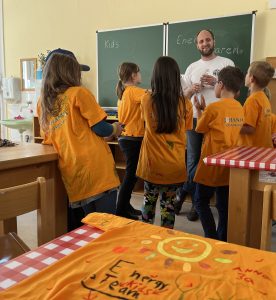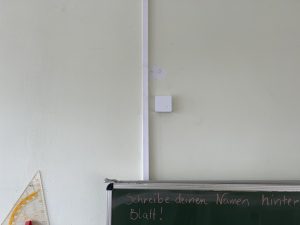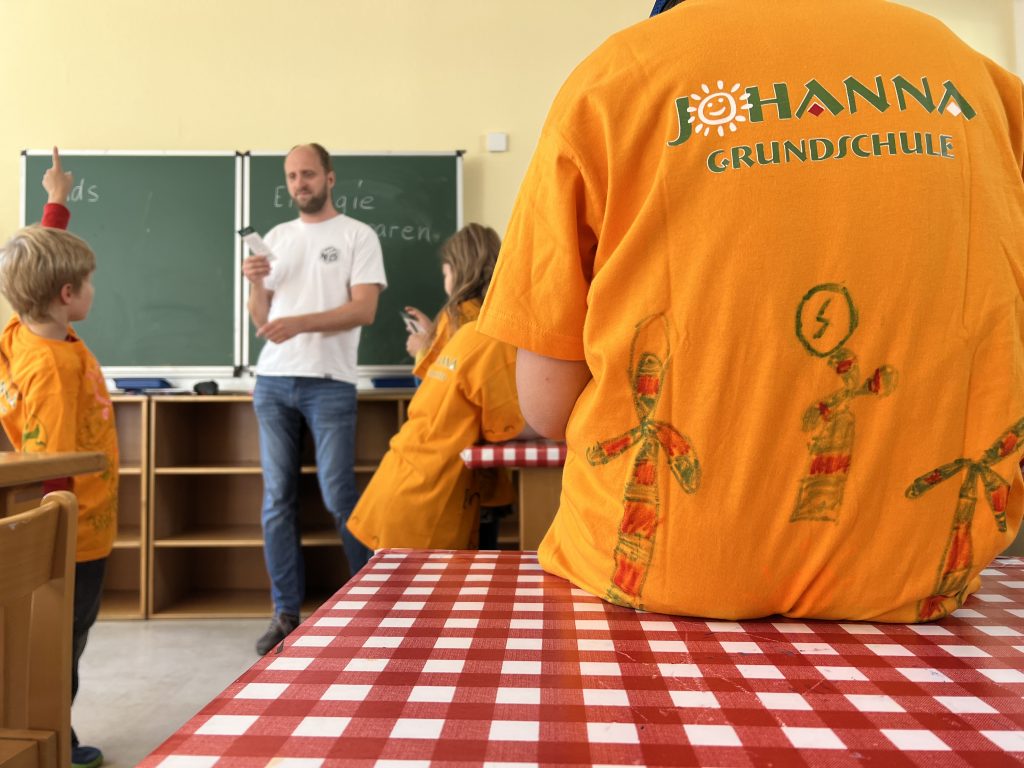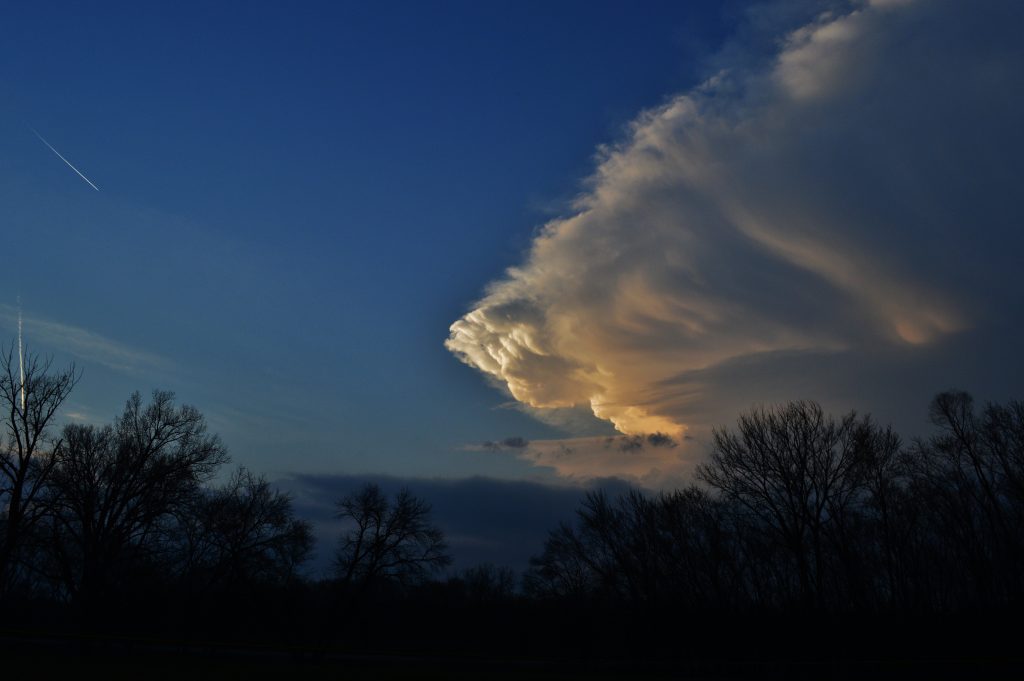As part of the EU project MAtchUP, the 102nd “Johanna” elementary school was used to investigate how the interaction of modern sensor technology and committed people can significantly save heating energy. The building at Pfotenhauerstrasse 40 is a so-called “Dresden Atrium” type school building, of which around 180 were built in the GDR between 1963 and 1981. 38 of them still exist in Dresden today.
Dr Robert Franke, head of the Office for Economic Development: “The high prevalence of this type of school was an argument for testing energy-saving measures here. The same building cubature and similar modernization and insulation standards make it easier to transfer the findings to other schools and achieve real economies of scale.”
First, a comprehensive inventory of building plans and room usage was conducted in 2018. With the installation of additional measurement technology such as digital heat meters and transmitting room temperature sensors and CO2 measuring devices, the situation was analyzed and optimization options were discussed. The main consumption is district heating, the focus was on optimizing the central heating control. A publicly viewable monitoring platform was set up to reveal consumption in the rooms studied.
Tom Eckhardt, head of research at the technology partner EA Systems Dresden, built a physical computer model of the school: “With the digital twin of the Johanna, we were able to simulate extensive scenarios such as supply temperature reduction, night shutdown, heating behaviour or the influence of ventilation on room temperature without affecting the school’s daily routine. Different control options could thus be varied quickly. Even the simulation of borderline cases or daring controls was possible at no risk.” In this way, a new, more economical heating control system was developed, which was finally tested and refined on the real building.

Technology and climate kids hand in hand.
There is a special human component here: committed elementary school students who, as the energy team, turned down the thermostats after school hours in the pilot test. Stefan Lux, teacher and head of the energy club: “We were pleasantly surprised by the massive savings of around a third of the heat energy. Unfortunately, the rooms were too cold in the morning. That’s why a central heating cutoff was then installed, which mimics the behaviour of our climate kids and then heats up again in time in the morning.” With the consistency and centrality of the new heating control, heat savings have been further increased and are effectively around 100 MWh per year. While this means that Energy AG is no longer responsible for the after-school thermostat control, it continues to promote awareness and attention to energy conservation measures.

Roll out citywide.
The positive results of the pilot also convinced others in the state capital. Kristian Meier-Hedrich, acting head of the Office of Building Construction and Real Estate Management, is responsible for climate protection and sustainability in the municipal building stock: “Even before the energy crisis, we were intensively looking at how we could reduce the energy consumption of municipal buildings. The results from the Johanna have shown us that we can exploit the possibilities of modern control technology even further – without sacrificing comfort.” Dr Katrin Düring, Head of the Office for Schools: “This school year, we are starting with 13 schools to optimize the existing systems. Together with the Building Construction Office, we have set up a program to convert all 38 types of schools in perspective and to transfer the findings to other types of schools and existing buildings.”
For more information, see the final report and the presentation.
News by Dresden local desk.


